Addressing issues in global sanitation
ECS has awarded over $210,000 of seed funding to four innovative research projects addressing critical technology gaps in water, sanitation, and hygiene challenges being faced around the world.
In its first Science for Solving Society’s Problems Challenge, ECS partnered with the Bill & Melinda Gates Foundation to leverage the brainpower of the many scientists in electrochemistry and solid state science and technology that regularly attend ECS meetings. The four grantees were identified during a multi-day workshop at the Electrochemical Energy and Water Summit in Cancun, Mexico held October 5-9, 2014.
Applying electrochemistry to global issues
Over 100 researchers were guided through a brainstorming and working group session with the theme of improving access to clean water and sanitation in developing countries. Brandy Salmon, PhD, Senior Innovation Advisor from RTI International facilitated the brainstorming.
“The idea was to inspire researchers to consider the many ways electrochemistry can be applied to solve issues of global significance,” explains Salmon. “ECS provided a lab for collaboration that generated new ideas and partnerships.”
Ideas suggested ran the gamut from turning urine to hydrogen power and using microorganisms that harvest energy from marine sediments to looking at “molecular slip” as part of making waste pipes more efficient.
Presenting in the ‘Shark Tank’
The format provided a unique opportunity for researchers to generate potential solutions and then almost immediately start testing them.
After the brainstorm session, researchers then had two days to develop a one-page pitch. Thirty finalists were selected from the 47 proposals submitted by the end of the second day. Those 30 were given five minutes each in the “Shark Tank” to present his/her idea to a panel of judges followed by five minutes of questions. The funding review panel scored proposals for innovation, collaboration, mission and capacity.
The final deliberation and selection concluded the next day.
Bypassing the red tape
“This really is science for solving society’s problems,” noted Paul Kohl, past president of ECS. “An expert, in this case the Bill & Melinda Gates Foundation, presents the problem, ECS gathers ideas from the brightest minds in the field and their peers review the proposals and grant the money in a very short period of time. No red tape. More time will be spent on addressing the problem and less time on raising money.”
“This is true reality programing, a model for moving the needle on real-world problems,” says Roque Calvo, executive director of ECS. “We would like to replicate this at our future bi-annual meetings, which regularly attract more than 2,000 of the brightest minds in science. We have invaluable assets in our membership; we just need corporations and foundations to identify the challenges they’d like to address, and provide the capital so our membership can start solving additional challenges.”
Speakers
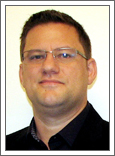 Carl Hensman
Carl Hensman
Water, Sanitation and Hygiene team within the Global Development Program of the Bill & Melinda Gates Foundation
Keynote Speaker
Carl Hensman joined the Water, Sanitation and Hygiene team within the Global Development Program of the Bill & Melinda Gates Foundation in January 2012. Prior to joining the foundation, Dr. Hensman was an Energy Program Manager for King County, Washington (Seattle) focusing on resource recovery in the Wastewater Treatment Division.
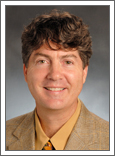 Brian Stoner
Brian Stoner
PhD, Distinguished Fellow at RTI International
Moderator
Brian Stoner’s research activities at RTI International include biomedical materials and devices, vacuum microelectronics, and energy technologies. He is also leading a project for the Bill & Melinda Gates Foundation to reinvent the toilet, developing a waste treatment system for use in developing nations that converts human waste into burnable fuel, stored energy and disinfected, non-potable water through a new biomass conversion unit.
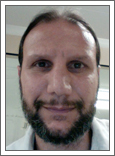 Ioannis Ieropoulos
Ioannis Ieropoulos
University of the West England, Bristol
Urine-tricity ++: Electricity from urine
Ioannis Ieropoulos is a Professor of Bioenergy and Self-Sustainable Systems and an EPSRC Career Acceleration Fellow (EP/I004653/1; EP/L002132/1) at UWE, Bristol. He has a degree in Electrical & Electronics Engineering, and a Master’s in Telecommunications and Digital Signal Processing.
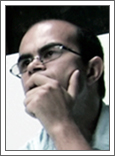 Clement Cid
Clement Cid
California Institute of Technology
2.6 billion people live without access to safe toilets! Would electrochemistry be an answer to the Sanitation Crisis?
Clement Cid is a PhD student in Environmental Science and Engineering at California Institute of Technology. As part of Dr. Michael Hoffman’s research team at the California Institute of Technology, he has been developing a Self-contained, PV-powered Electrochemical Toilet & Domestic Wastewater Treatment System since 2011.
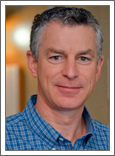 Marc Deshusses
Marc Deshusses
Duke University
Odor control, disinfection and energy conversion in fecal sludge management: A Selection of critical needs and challenges
Marc Deshusses’ broad research interests are related to the design, analysis and optimization of processes for waste treatment. A current focus is on novel reactors and processes for air, water and solid wastes treatment. Applications include treatment of odors and air toxics, biogas production, and novel sanitation technologies for less developed countries.
The Energy Water Nexus symposia, a central focus for the Electrochemical Energy & Water Summit was a particularly relevant technical symposia for attendees.
Senior Technology Integration and Innovation Manager from RTI International, Dr. Brandy Salmon, supported the development of workshop resources, and provided structure and guidance for the workshop. Dr. Salmon is among a team of Innovation Advisors at RTI who provide innovation management and strategy, technology commercialization, assessment, and partnership support for federal agencies, universities, foundations and companies. Dr. Salmon is an experienced facilitator and expert in innovation management and technology assessment.
For information about potential problem solving collaborations, please contact development@electrochem.org.
Steering Committee
- Luis Gerardo Arriaga, Centro de Investigación y Desarrollo Tecnologico en Electroquimica
- Kathy Ayers, Proton OnSite
- Roque Calvo, ECS Executive Director
- Dan Fatton, ECS Director of Development
- Carl Hensman, Bill & Melinda Gates Foundation
- Paul Kohl, Georgia Tech and President of ECS
- Paul Natishan, Naval Research Laboratory and Past President of ECS
- Brandy Salmon, RTI International
- Brian Stoner, RTI International
- E. Jennings Taylor, Faraday Technology, Inc. and Treasurer of ECS
- Eric Wachsman, University of Maryland, Energy Research Center
Funding Review Panel
- Luis Gerardo Arriaga, Centro de Investigación y Desarrollo Tecnologico en Electroquimica
- Kathy Ayers, Proton OnSite
- Ioannis Ieropoulos, University of the West England, Bristol
- Paul Kohl, Georgia Tech and President of ECS
- Barry MacDougall, National Research Center of Canada and Past President of ECS
- Paul Natishan, Naval Research Laboratory and Past President of ECS
- Brian Stoner, RTI International
- E. Jennings Taylor, Faraday Technology, Inc. and Treasurer of ECS





